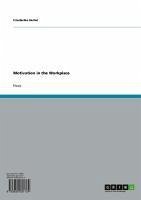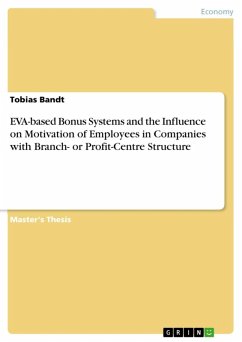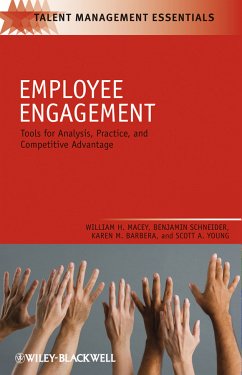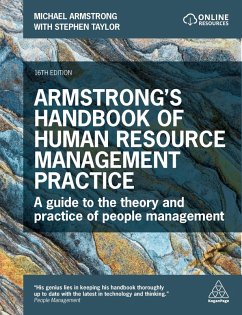
Motivation in the Workplace (eBook, ePUB)

PAYBACK Punkte
0 °P sammeln!
"Motivation is the process of stimulation an individual to take action that will accomplish a desired goal." (Barron's; 236) The word motivation comes from the Latin word 'movere', which means to move or to urge. There are numerous definitions of motivation, which is logical, because there are many different personalities that are motivated through different factors, as well as there exist various motivation theories and programs. Motivation is getting more important every day since the competition in the workplace is increasing on a daily basis as well as the unemployment rate. Management has...
"Motivation is the process of stimulation an individual to take action that will accomplish a desired goal." (Barron's; 236) The word motivation comes from the Latin word 'movere', which means to move or to urge. There are numerous definitions of motivation, which is logical, because there are many different personalities that are motivated through different factors, as well as there exist various motivation theories and programs. Motivation is getting more important every day since the competition in the workplace is increasing on a daily basis as well as the unemployment rate. Management has to find an effective way of motivate not only themselves, but more to motivate their employees, therefore management has to take into account theories and has to consider the differences in personality of its workforce, to imply a successful motivation program. The first theorist, which has to be taken into account, was Frederick W Taylor (1856 - 1915) who believed that only through maximal worker productivity economic prosperity could be achieved which in turn would be the product of making employees more efficient. Taylor is also known as the "Father of scientific management"; he called this approach the Scientific Management and his beliefs were that only a management scientist would be able to achieve this efficiency of the worker. Furthermore Taylor did not have trust in employees, in his opinion, workers start lacking efficiency as soon as there is not such a management scientist. His aim was to achieve maximum efficiency and to reach this goal he created a process called job fractionation. By observing different workers at different jobs he measured the amount of time a worker needed to finish a task and then looked at each job and its constituent tasks (=basic work units), he used these measurements to create time and motion studies. [...]
Dieser Download kann aus rechtlichen Gründen nur mit Rechnungsadresse in A, B, BG, CY, CZ, D, DK, EW, E, FIN, F, GR, HR, H, IRL, I, LT, L, LR, M, NL, PL, P, R, S, SLO, SK ausgeliefert werden.













